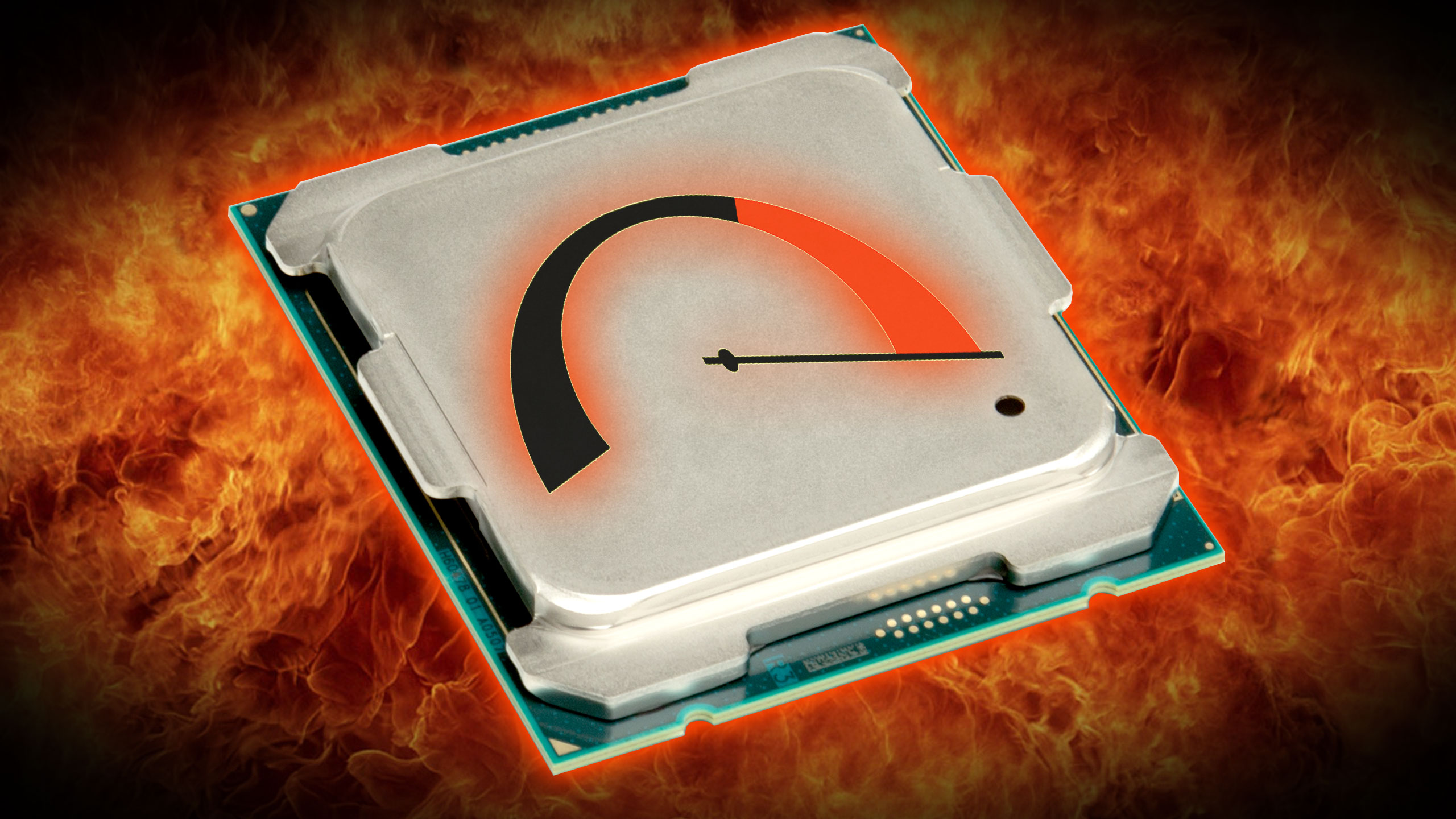
“Is my CPU overheating?” When a PC spontaneously shuts down, locks up, or starts chugging in a demanding game, this is one of the first questions we ask ourselves. Figuring that out is easy: all you need to do is install some monitoring software, like HWMonitor, and run it while you play a game. (If you want even more data than HWMonitor will give you, check out HWiNFO 64.) Keep an eye on those temperatures to see if your CPU is the culprit.
The important follow-up, if that CPU really is having a socket sauna, is this: “Will overheating hurt my CPU?”
The short answer? No. When running at stock speeds, especially for desktops, CPU heat shouldn’t ever be an issue—assuming everything is working properly. And if things aren’t going well and your CPU does get too warm, thermal protection will kick in to keep any serious damage from being done. Laptops are slightly more complicated, as cooling a CPU and GPU in a slim chassis is simply more difficult than in a desktop. Again, the system should jump in and stop you before any damage is done, but you’re much more likely to experience a drop-off in performance if things start getting too toasty.
Under 60°C: You’re golden. Nothing to see here.
60-70°C: Running okay, but perhaps a bit warm for stock (check fans/dust)
70-80°C: Maybe okay if you’re overclocking and trying to eke out the last 100MHz, otherwise check cooling fans, dust, and maybe back off the voltage or overclock (if applicable)
80-90°C: Potential for throttling to occur, and about as far as we’d ever want to push a CPU
Over 90°C: Almost certainly throttling, and combined with high voltages could kill a CPU within months to a year or so.
If you’re running stock and your CPU temperatures are hitting 80°C or higher, that’s a warning sign something isn’t working properly. Maybe a fan is dead, or thermal paste wasn’t applied properly, or your heatsink is super dusty. Most desktop CPUs should land in the 50-70°C range under load, so if you’re consistently pushing numbers into the 80s without overclocking, that’s definitely cause for concern.
Overclocking, on the other hand, paints a different picture. Killing a CPU via overclocking without touching the voltage is highly unlikely, but some auto-overclocking features in motherboard BIOSes will apply more voltage. When you push a CPU to higher clock speeds, most of the time you’ll just get a crash if things get too hot. But if you push voltages too high and mix in overclocking, then yes, you can kill a CPU.
Overclocking temperatures could in theory go as high as 90°C while still being ‘safe’, and the max temperature for many CPUs is listed in the 105-110°C range. But for long-term use, you’re much better off keeping things below 80°C in general and only pushing up to 85°C at the most. Besides, squeezing a final 100-200MHz out of a CPU usually requires more voltage (remember: recipe for a toasted CPU) and only gets you maybe 1-3 percent more performance anyway. And that’s assuming you’re not hitting a graphics bottleneck, in which case the CPU overclock might not even matter.
Luckily, there are plenty of options available to help combat the heat. The stock heatsink/fan that came with your CPU is fine for normal use, though not always as quiet as some people might like. In that case it’s also probably best to keep overclocking on the mild side of the equation.
The biggest gaming news, reviews and hardware deals
Keep up to date with the most important stories and the best deals, as picked by the PC Gamer team.
For a step up, good air-cooling can be had for $40-$50, and is sufficient for good overclocking (think 4.6GHz on Skylake CPUs). Liquid-cooling (~$100 range) will drop temperatures several °C further—even when overclocked—helping get you that final 100-200Mhz (4.7-4.8GHz on Skylake). Check out our guide to the best CPU cooler to see our picks for what you should look for.
And if a good fan cleaning doesn't drop your temperature, consider buying some new thermal paste. Think of it like sunscreen: if your CPU has been humming along for a few years, some fresh thermal paste could help stave off the heat.
As the former head of PC Gamer's hardware coverage, Bo was in charge of helping readers better understand and use PC hardware. He also headed up the buying guides, picking the best peripherals and components to spend your hard-earned money on. He can usually be found playing Overwatch, Apex Legends, or more likely, with his cats. He is now IGN's resident tech editor and PC hardware expert.


